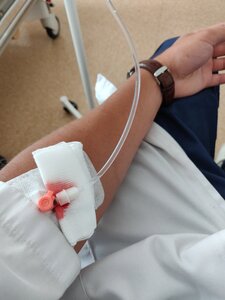It appears Josef Rauschecker may be considering a method for extending the effect of lidocaine on tinnitus. There could be some interesting avenues such as use of a pump or an injection of lidocaine in a sustained release polymer under the skin? - Something more serious than the lidocaine patch which may not amount to anything more than putting a piece of tape behind your ear! I've never had lidocaine for tinnitus, but Rauschecker is citing old literature that puts it at a 75-85% success rate. Should be a cheap drug, too. - TC
From the 2018 TINNET Conf-
ID: 259 / Session 4: 5
Abstract
New ways forward in Tinnitus Research?
Josef P. Rauschecker
...... The second approach we have been pursuing more recently is to build on the single pharmacological method that has been proven successful in suppressing tinnitus in 75-80% of cases: intravenous injection of lidocaine (Goodey, 1981). Despite its high effectiveness and relative safety, it has never been developed into routine treatment. One reason is obviously the short duration of its effect on tinnitus, and one of our goals is to extend this duration. Recent studies of chronic pain are encouraging in that respect (Challapalli et al., 2017; Daykin, 2017).
From the 2018 TINNET Conf-
ID: 259 / Session 4: 5
Abstract
New ways forward in Tinnitus Research?
Josef P. Rauschecker
...... The second approach we have been pursuing more recently is to build on the single pharmacological method that has been proven successful in suppressing tinnitus in 75-80% of cases: intravenous injection of lidocaine (Goodey, 1981). Despite its high effectiveness and relative safety, it has never been developed into routine treatment. One reason is obviously the short duration of its effect on tinnitus, and one of our goals is to extend this duration. Recent studies of chronic pain are encouraging in that respect (Challapalli et al., 2017; Daykin, 2017).

 Member
Member
